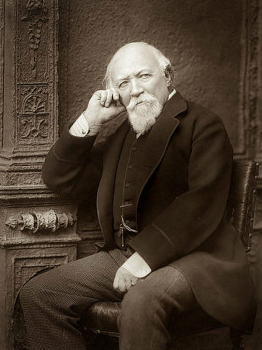In the history of China, there have been many outstanding figures whose achievements and reputation have been passed down through the ages. Among them, Jia Kui, a litterateur from the late Eastern Han Dynasty, is a respected historical figure. This article aims to reveal the charm of this literary giant from his life, achievements, and influence.

Jia Kui (approx. 147-229), styled Gongming, was a renowned litterateur and politician from the late Eastern Han Dynasty. Born into a prestigious family, his grandfather Jia Yi was a famous litterateur and politician of the Western Han Dynasty, while his father Jia Chong was a renowned general of the late Eastern Han Dynasty. Jia Kui was exceptionally intelligent from a young age, having read extensively and excelled in the creation of prose and poetry. His literary achievements allowed him to stand out in the Eastern Han court, where he served as Shangshulang and Shizhong.
However, Jia Kui's most celebrated feat was his heroic performance during the Yellow Turban Rebellion. Appointed as the governor of Yingchuan, he led his troops to successfully quell the local rebellion, earning significant military achievements that stabilized the political situation of the Eastern Han Dynasty.
In literature, Jia Kui was a renowned litterateur of the late Eastern Han Dynasty. His literary creations spanned prose, essays, poetry, and other fields, boasting high artistic value. His prose works such as "Qi Fa" and "White Horse Piece" became representative works of prose creation in the late Eastern Han Dynasty due to their beautiful language and profound ideological content. Moreover, Jia Kui excelled in essay writing, as evidenced by his "On Crossing Qin," which showcased the elegance of literati in the late Eastern Han Dynasty through its unique insights and eloquent writing.
In politics, Jia Kui served as the governor of Runan and Henan Prefect, contributing to the stability and prosperity of the country. However, his life was filled with many challenges and setbacks. One of the most noteworthy was his feud with Sima Zhao. According to the "Records of the Three Kingdoms," Jia Chong was appointed as the governor of Runan during the early establishment of the Cao Wei Kingdom. However, due to severe political conflicts with Sima Zhao, Jia Chong repeatedly petitioned against Sima Zhao's crimes during his tenure. This led to Sima Zhao harboring immense enmity towards Jia Chong. Later, Jia Chong resigned due to illness but was assassinated by Sima Zhao's agents on his way home. However, this claim lacks solid historical evidence.
Despite the challenges and tragedies in Jia Kui's life, his achievements in literature and politics still made him a remarkable figure in the late Eastern Han Dynasty. His literary works have been passed down through the ages, influencing later generations of writers and scholars. His political career also contributed to the stability and prosperity of the country. Through studying Jia Kui, we can gain a deeper understanding of the political struggles and literary style of the late Eastern Han Dynasty, as well as draw wisdom and strength from his life.
Disclaimer: The above content is sourced from the internet and the copyright belongs to the original author. If there is any infringement of your original copyright, please inform us and we will delete the relevant content as soon as possible.
































